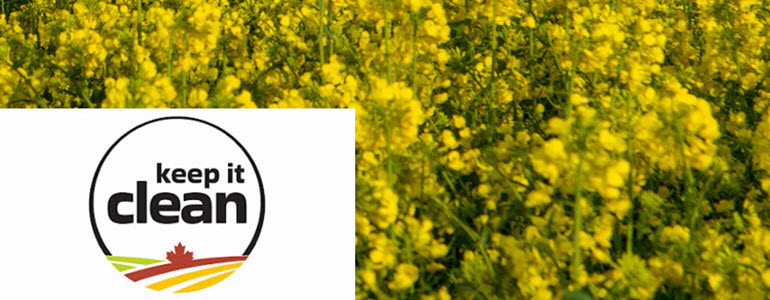
As an ag retailer you can help play a vital role in ensuring canola is suitable for export markets, that’s why Keep it Clean is asking for your help regarding malathion.
For canola producers, maintaining the purity of the canola crop for export markets is paramount.
Using malathion in canola storage bins can pose a significant risk as it can transfer residues to the canola seeds, making them unsuitable for export and damaging the marketability of Canadian canola.
The agriculture industry is strongly advised against using malathion to prepare storage bins for canola. Instead, alternative treatments like diatomaceous earth should be used to ensure the bins are safe for canola storage.
Proper bin preparation includes thorough cleaning and conditioning of the crop to the correct moisture and temperature levels to avoid quality degradation.
The storage environment plays a crucial role in preserving the quality of canola. Bins should be kept cool, dry, and well-ventilated, and regular monitoring is necessary to ensure that the storage conditions remain optimal.
To further protect their crops, farmers should ensure that bins have not previously contained treated seeds or animal-based products, such as blood meal or bone meal, which could contaminate the canola. It’s also vital to record any pesticide use on other crops to prevent accidental usage in bins designated for canola.
By adhering to these storage practices, the canola industry can help keep their product safe and market-ready, supporting Canada’s reputation as a top-quality canola exporter. Additional storage tips and guidelines can be found on the Canola Council of Canada’s website.
